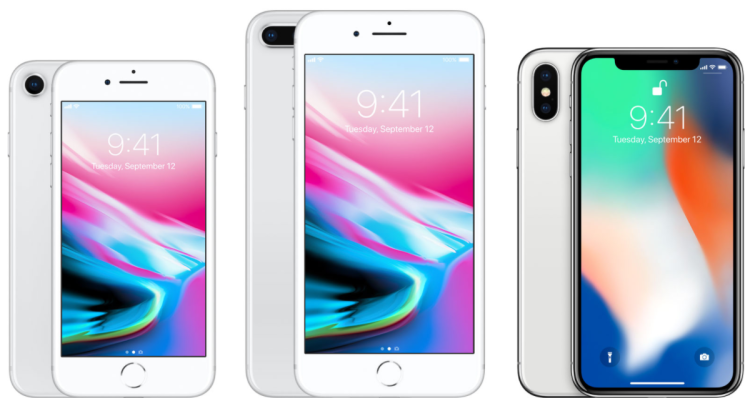Following a finding that certain iPhones infringed a Qualcomm patent, a U.S. International Trade Commission judge recommended today that the United States ban Apple from importing the devices. While the recommendation is subject to review by the full ITC, it raises the prospect that some of Apple’s flagship products could soon be barred from sale in their home market.
Today’s recommendation was issued by ITC Judge MaryJoan McNamara (via Bloomberg), who found that iPhones made with Intel chips had infringed one Qualcomm patent — specifically for a power-saving feature — but not two others related to downloading data. Apple previously relied heavily on Qualcomm modems for its iPhones, but began to move its modem business over to Intel after accusing Qualcomm of unfair licensing practices.
A handful of fairly recent iPhone models could be subject to the ban. In addition to carrier-specific versions of prior-generation iPhones, Apple moved all of its 2018 iPhone models to Intel modems, ending Qualcomm’s supplier role apart from continued sales of legacy products.
It’s worth bearing in mind that the judge’s recommendation is not final, and will not result in a ban unless the full ITC agrees. Qualcomm has argued that banning infringing iPhones will send a message to Apple regarding the value of its intellectual property, while Apple claims that the chipmaker is abusing its patent holdings in a monopolistic manner.
June 5th: The AI Audit in NYC
Join us next week in NYC to engage with top executive leaders, delving into strategies for auditing AI models to ensure fairness, optimal performance, and ethical compliance across diverse organizations. Secure your attendance for this exclusive invite-only event.
Apple and Qualcomm are currently fighting multiple patent and patent licensing battles around the world. Qualcomm has won partial iPhone bans in both Germany and China based on patent infringements, though Apple has sought to mitigate the issues with software patches and hardware supply changes. A separate U.S. trial found earlier this month that Apple had infringed three Qualcomm patents, awarding Qualcomm $1.41 for every infringing iPhone sold.
Updated at 11:54 a.m. Pacific: Qualcomm has issued a statement regarding the ITC’s initial finding, which is now embedded here in full. The company notes that Judge McNamara intends to recommend both a limited exclusion order and a cease and desist order against Apple, effectively blocking the company from bringing infringing iPhones into the United States, and warning it to stop doing so in the future.
[scribd id=403237064 key=key-hPy96auT2m4nAOVc4qKL mode=scroll]
“We appreciate Judge McNamara’s recognition of Apple’s infringement of our hardware patent,” said Qualcomm General Counsel Don Rosenberg, “and that she will be recommending an import ban and cease and desist order.”

